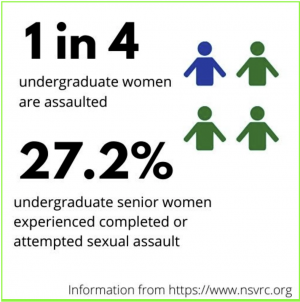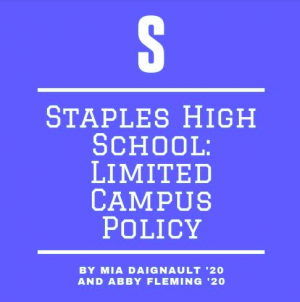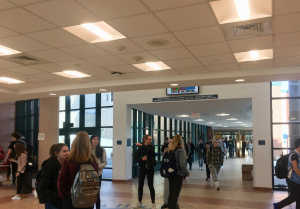An open campus should be exercised through a merit-based system
All images by Lauren Hassell ’22
GG & Joe, along with other local restaurants, offers an outdoor seating arrangement. Eating outside has been proven to lower stress levels. Students would, therefore, find it enjoyable to take a break from school to go enjoy lunch at GG & Joe.
We thought a quick Starbucks trip during our two-hour lunch period free was a great idea. It was a rainy Monday and my first day at school since November after transitioning from a full distance learner. I was exhausted to say the least.
Starbucks in hand, we entered the Staples cafeteria and were immediately stopped by a blockade of administrators. They proceeded to guide us in a “walk of shame” to the Assistant Principals’ office, and I sense every student turning to stare at the four girls who just got caught.
I was confused. I was completely unaware that it was a punishable offense to leave campus during the lunch period. I had seen many people leave prior to us and I had always assumed it was something you were able to do. We learned otherwise in our four-hour Saturday detention.
Staples practices a “closed campus.” A closed campus requires that students are not permitted to leave school grounds during school hours. Despite the well-intentioned policy to ensure student safety, a closed campus limits freedom and prohibits the development of teenagers into responsible adults.
Students should be granted with conditions the ability to leave campus for lunch. If a student exercises responsibilities such as completing school work on time and maintaining an excellent attendance record, then it is only fair they are granted the privilege to leave campus. Students possessing these characteristics demonstrate a care for education, and should therefore be trusted to return to class on time.
Just as a privilege is granted, it can be taken away. If students fail to maintain a good work ethic and attendance record, they will no longer be given the opportunity to vacate the school premises. Those who are permitted to leave campus must return to school prior to their next class, or face off-campus privileges being revoked.
Additionally, the school should keep an online system that generates a list of students eligible, and not eligible to engage in off-campus privileges. Students must check in with an administrator at the front desk before leaving, and if a student fails to comply with this rule they should be subject to punishment.
Allowing students to leave campus has many benefits for the school, for local businesses and for families. Students would be more inclined to excel in school if there is a reward system that gifts the students with a small slice of freedom. Students with this privilege will also learn valuable lessons, such as time management. Considering that students have a generally small time frame, they must enjoy their lunch somewhere in town. Having more customers to cater to, local businesses will profit. If students do not want to purchase food, they can eat in the comfort of their home. This will ultimately help families because they do not need to spend the additional money on students buying lunch at school.
An off-campus format as a result of a merit system, teaches students to practice time management skills and creates a profit for multiple parties. This system would create a happier, more engaged student body.

Lauren Hassell ’22 has been a part of Inklings since sophomore year, but has been a part of the journalism world for a while. Hassell’s interest...






















































